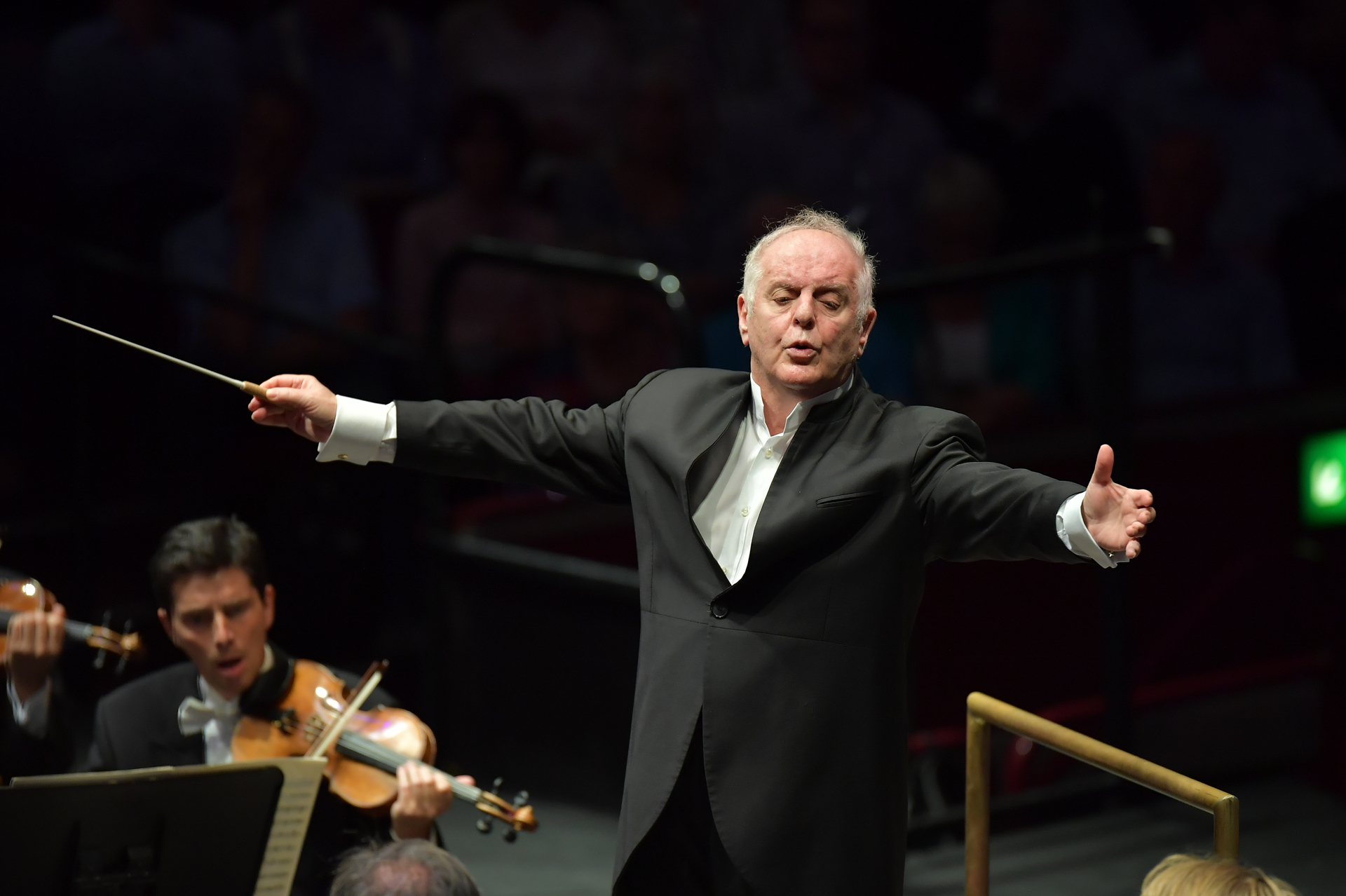Daniel Barenboim is as distinctive as he is unpredictable. His considerable strengths – dynamism, passion, keen intellectual engagement – are balanced by some notable weaknesses – clunky tempo changes, lack of detail – but all configure differently in each performance. This Prom was a success largely for the fresh perspectives he brought to Mozart and Bruckner, both composers prone to stiffness and formality from less adventurous performers.
If the Mozart was the less successful, it was because Barenboim seemed to take his ideas too far, always working just outside the bounds of classical convention. But everything came together in the Bruckner, a performance of dynamism, invention and surprising subtlety, fully vindicating the conductor’s approach.
Mozart’s Piano Concerto No. 26, the “Coronation” is a paradox, technically conservative but forward looking in its melodic expression. An ideal work, then, for Barenboim’s questing musical intellect. For Barenboim, leading from the keyboard means taking full control of the tuttis, squatting awkwardly over the keys (the piano arranged so that he faces the orchestra) and giving incisive tempo indications to start phrases, followed by curt gestures to close them down.
The conviction and focus of these closing pages were a perfect summation
He has worked so long with his orchestra, the Staatskapelle Berlin, that their relationship now seems symbiotic, and when he sits down, he seems just as able to communicate with the ensemble simply through his playing. Which is an achievement given the flexible tempos he expects them to follow. His playing is muscular and decisive, but subtle too. Typically, he will give a strong, commanding statement of a key melodic line, but then follow it with a delicate, filigree answering phrase. The orchestra always follows suit, the rich string sound an ideal match for his imperious tone.
But this was a subjective performance too, with many indulgences. The slow movement often felt rushed, or at least impatient, Barenboim’s tempi suiting his piano lines far better than the orchestra beneath. The finale, in contrast, was relaxed, casual even, especially in the quiet episodes towards the end. Few but Barenboim could get away with such unbridled Romanticism in Mozart.
Barenboim has a poor track record with Bruckner. His recordings with this orchestra and his previous appearances at the Proms have fallen short owing to a poor understanding of the music’s expressive shape and a lack of patience for its pace of development. But last night's Sixth Symphony was in a different category. As ever, Barenboim took his own approach, often faster than the norm, though, as in the Mozart, with some daringly slow interludes as well. And, crucially, all the difficult tempo transitions worked beautifully, making the symphony (and it’s one of Bruckner’s problem children) sound natural and intuitive.
For his final daring act of the evening, Barenboim held back the last quiet interlude, the tempos and dynamics at an absolute minimum, before unleashing all in the coda. The final brass fanfares got lost in the mêlée (in the first movement coda, too), but it didn’t matter. The conviction and focus of these closing pages were a perfect summation of the evening: drive, focus, energy, conviction – all the Barenboim trademarks firmly in place.














Add comment